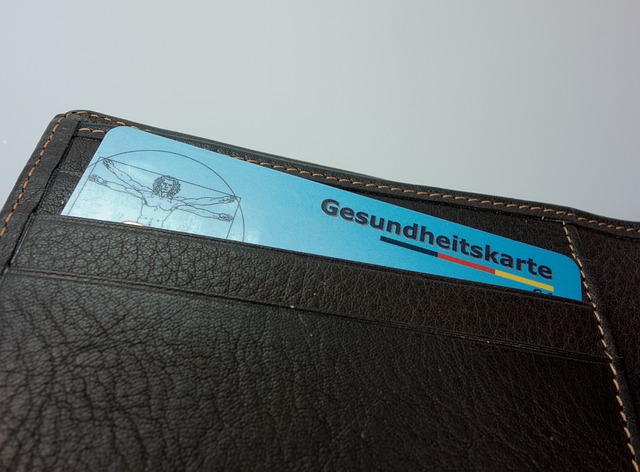The Insurance Regulatory and Development Authority of India (IRDAI) has banned insurers from marketing unit-linked policies as investment products, especially in motor insurance, emphasizing transparency and consumer protection. This move aims to educate policyholders about the true nature of these plans, ensuring they understand the protective benefits of comprehensive car insurance rather than mistaking them for financial investments. Insurers must adapt their marketing strategies, shifting focus from investment-related claims to highlighting policy features and advantages, thereby empowering consumers with informed choices.
In a groundbreaking initiative to fortify consumer protection, the Insurance Regulatory and Development Authority of India (IRDAI) has taken a pivotal step by prohibiting insurers from marketing unit-linked policies as investment avenues. This stringent directive underscores IRDAI’s commitment to enhancing transparency in motor insurance, especially for comprehensive car insurance plans. By doing so, the authority aims to empower policyholders with clear insights, enabling them to make well-informed decisions tailored to their unique needs and circumstances. This article delves into the nuances of this regulatory shift, exploring its implications on both consumers and insurers alike.
- IRDAI's New Rule: Unit-Linked Ads Banned
- Motor Insurance Focus: Transparency for Consumers
- Understanding Comprehensive Car Insurance
- The Impact on Insurer Marketing Strategies
- Protecting Policyholders: Informed Choices
- Navigating Changes in the Insurance Landscape
IRDAI's New Rule: Unit-Linked Ads Banned

The Insurance Regulatory and Development Authority of India (IRDAI) has taken a significant step to protect consumers by implementing a new rule that bans insurers from advertising unit-linked policies as investment products. This directive is a clear indication of IRDAI’s commitment to enhancing transparency in the insurance sector, especially when it comes to motor insurance policies.
Under this new rule, insurance companies are no longer permitted to present unit-linked plans, such as those associated with comprehensive car insurance, as attractive investment opportunities. The aim is to ensure that policyholders, particularly those considering important and often expensive comprehensive motor insurance, understand the true nature of these products. By doing so, IRDAI hopes to empower consumers to make informed choices, avoiding potential pitfalls that may arise from misconstrued advertising claims.
Motor Insurance Focus: Transparency for Consumers

In recent developments, the IRDAI has taken a significant step to enhance consumer protection and transparency in the insurance sector by cracking down on misleading advertising practices. The focus is especially on motor insurance, where consumers often face complexity when choosing between various policy options. By barring insurers from marketing unit-linked policies as investment products, the regulator aims to ensure that customers understand the true nature of their car insurance coverage.
This directive underscores the IRDAI’s commitment to empowering policyholders with knowledge. It is a crucial move to prevent consumers from making uninformed decisions regarding comprehensive car insurance, which can often be shrouded in technical language and intricate terms. By promoting transparency, the authority encourages policyholders to become more engaged participants in the insurance process, ultimately fostering a fairer and better-informed insurance market.
Understanding Comprehensive Car Insurance

Comprehensive car insurance is a type of coverage that goes beyond the basic protection offered by third-party liability policies. It provides a broader spectrum of financial security for vehicle owners, shielding them from various risks associated with their cars. This includes protection against damage to your own vehicle in case of accidents, natural calamities, theft, or vandalism.
The directive by IRDAI highlights the importance of consumers understanding these policies’ true nature. Unit-linked policies, often marketed as investment products due to their linked fund components, can be complex. By banning their promotion as investments, IRDAI ensures policyholders focus on the insurance aspect, making informed choices that align with their protection needs rather than mistaking them for financial investments.
The Impact on Insurer Marketing Strategies

The IRDAI’s decision will significantly reshape insurers’ marketing strategies, particularly those focused on motor insurance. Previously, advertisers could promote unit-linked policies as investment opportunities, attracting customers seeking both protection and potential returns. Now, with advertising restrictions in place, insurers must pivot towards emphasizing the protective aspects of comprehensive car insurance. This shift necessitates a reevaluation of marketing campaigns, with a focus on educating consumers about the coverage benefits rather than solely on investment prospects.
Insurers will need to adopt more transparent communication, ensuring that policyholders understand the direct relationship between premium payments and the extent of coverage they receive. As a result, marketing efforts might concentrate on showcasing the features and advantages of different motor insurance plans, highlighting how these policies safeguard against various risks associated with vehicle ownership. This change in strategy could lead to more personalized messaging, targeting specific concerns of car owners, such as roadside assistance, theft protection, or damage repairs.
Protecting Policyholders: Informed Choices

Protecting policyholders and empowering them to make informed choices are at the heart of this regulatory move. By barring unit-linked policies from being marketed as investment tools, IRDAI ensures that consumers grasp the true nature of these products—that is, they are primarily insurance contracts rather than investment vehicles. This clarity will help policyholders avoid potential misunderstandings about the risks and rewards associated with such policies.
The directive encourages insurers to communicate policy terms and conditions transparently, focusing on the insurance aspect rather than investment allure. As a result, consumers can make well-informed decisions when selecting comprehensive car insurance, understanding fully what coverage they are purchasing and what it entails.
Navigating Changes in the Insurance Landscape

The recent IRDAI directive marks a significant shift in how insurers market and sell unit-linked policies, particularly in the car insurance sector. This change is a response to growing consumer concerns about misselling and the complex nature of these products. By explicitly barring advertising these as investment options, IRDAI aims to streamline the purchasing process for consumers, ensuring they don’t confuse motor insurance with investment opportunities.
Navigating this new landscape requires insurers to adapt their strategies. They must now focus on transparent communication, clearly explaining policy features and benefits to potential customers. This could involve more detailed product disclosures, simplified language, and enhanced customer education, allowing buyers to make informed choices without the pressure of viewing policies as speculative investments.
In conclusion, IRDAI’s decision to ban unit-linked policy advertisements as investment products is a bold step towards consumer protection and insurance transparency. By focusing on motor insurance, particularly comprehensive car insurance, this directive empowers policyholders to make informed choices, ensuring they understand their coverage options clearly. Such measures significantly impact insurer marketing strategies, pushing them to adapt and emphasize the educational aspect of their promotions. This change promises a more transparent and consumer-centric insurance landscape in India.



